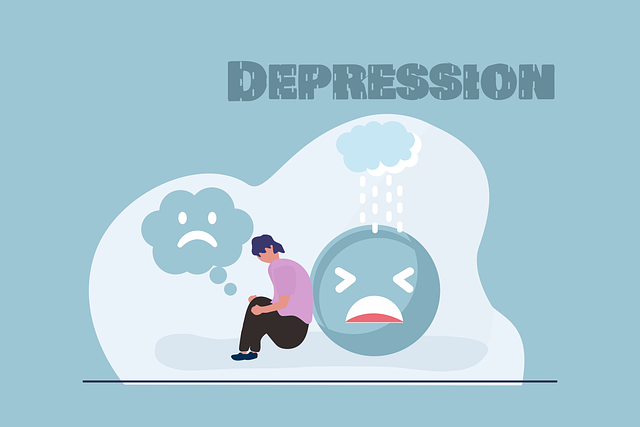Public awareness campaigns, focusing on issues like Aurora PTSD therapy, play a pivotal role in reshaping societal attitudes and actions towards mental health. These initiatives educate the public, reduce stigma, and encourage help-seeking behaviors. By employing strategies like mindfulness techniques and engaging programs, they reach diverse audiences. The ultimate goal is to enhance community well-being through long-term improvements in public health, measuring success through surveys, interviews, focus groups, and tracking self-care practices adoption.
Public awareness campaigns play a pivotal role in educating communities about critical issues, with one such area of growing importance being Aurora Post-Traumatic Stress Disorder (Aurora PTSD) therapy. This article delves into the development of effective public awareness strategies for Aurora PTSD, exploring their impact and providing actionable insights. We’ll uncover key measures to evaluate success, offering a comprehensive guide for stakeholders to navigate this crucial field.
- Understanding Public Awareness Campaigns and Their Impact
- Strategies for Developing Effective Aurora PTSD Therapy Campaigns
- Measuring Success: Evaluating the Effectiveness of Public Awareness Initiatives
Understanding Public Awareness Campaigns and Their Impact

Public awareness campaigns play a pivotal role in shaping societal perceptions and behaviors regarding critical issues. These initiatives aim to educate and engage the public, fostering a deeper understanding of various topics that impact their lives directly or indirectly. In the context of mental health, for instance, programs designed to raise awareness about conditions like Aurora Post-Traumatic Stress Disorder (PTSD) Therapy can be life-changing. By spreading knowledge, these campaigns empower individuals to recognize symptoms, seek appropriate help, and offer support to those in need.
Through creative strategies, such as incorporating Mindfulness Meditation techniques or designing engaging Mental Health Education Programs, awareness campaigns can effectively reach diverse audiences. They provide a platform for sharing valuable Crisis Intervention Guidance, ensuring that people know how to respond during mental health emergencies. The impact of these initiatives extends beyond immediate behavior changes; they contribute to long-term improvements in community well-being and overall public health by reducing stigma and promoting proactive mental wellness.
Strategies for Developing Effective Aurora PTSD Therapy Campaigns

Developing effective Aurora Post-Traumatic Stress Disorder (PTSD) therapy campaigns requires a multi-faceted approach that taps into the community’s inner strength. The first step involves identifying targeted demographics and tailoring messages to resonate with their unique experiences and needs. Engaging local influencers and survivors can amplify the campaign’s reach and credibility, fostering a sense of trust and connection among the target audience. Incorporating storytelling as a narrative device allows for personal connections, helping to humanize the issue and reduce stigma associated with seeking therapy.
Additionally, combining awareness raising with practical resources is pivotal. Offering accessible information on Aurora PTSD therapy options, along with promoting social skills training and trauma support services, empowers individuals to take proactive steps towards healing. Regular evaluation and adaptation based on community feedback ensure that campaigns remain relevant and effective in addressing the evolving needs of those affected by PTSD.
Measuring Success: Evaluating the Effectiveness of Public Awareness Initiatives

Measuring success is an integral part of evaluating the effectiveness of public awareness initiatives aimed at mental health issues, such as Aurora Post-Traumatic Stress Disorder (PTSD) Therapy. The impact of these programs extends beyond immediate participation, influencing long-term behavioral changes and community support. Organizations like Stress Management Workshops and Mental Wellness Coaching Programs Development often employ various methods to assess their initiatives’ success. This evaluation involves collecting data through surveys, interviews, or focus groups to gauge participants’ knowledge gain, attitudes, and self-reported changes in mental health symptoms post-awareness campaigns.
Self-Care Practices are another critical aspect measured to ensure the sustainability of positive outcomes. By assessing the adoption and integration of these practices into daily routines, organizations can understand how awareness campaigns translate into practical actions. This holistic evaluation approach helps identify areas for improvement and ensures that public awareness initiatives not only raise consciousness but also foster meaningful, lasting changes in mental wellness among communities.
Public awareness campaigns play a pivotal role in educating communities about mental health issues, such as Aurora Post-Traumatic Stress Disorder (PTSD) therapy. By employing strategic communication and targeted outreach, these initiatives can significantly enhance access to care and improve outcomes for those affected by PTSD. Through understanding the impact of these campaigns, developing evidence-based strategies, and measuring success through robust evaluation methods, we can ensure that public awareness efforts are effective and make a tangible difference in promoting mental well-being.












